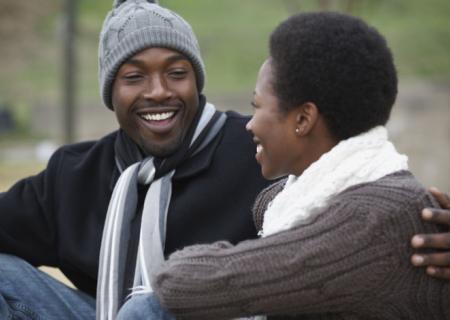
Georgia completed a six-month placement with us, supporting the Programmes team with the Feeling Our Way project.
The Feeling Our Way project supports care-experienced young people through psychoeducation supplied digitally over the course of a year. Every few weeks, young people receive digital information packs that explore themes around mental health, coping strategies, ways to well-being and building confidence. This is part of a growing area of work for the Foundation to address the needs of children and young people who have experienced being in care.
Georgia shares her story about what it feels like to move from being in care to living independently from the perspective of lived experience.
What does it feel like to live alone for the first time?
It’s a bit of a weird feeling, really. Most people get to choose to live alone and decide when that happens for themselves. I didn’t really get much of a say. It was more, “you have to be out before your 18th birthday.”
To go from a very chaotic and loud household to almost pure silence is jarring, the two things are almost juxtaposed. You often have a lot of pressure put on you to know what to do.
There is often a lot of disconnect between what people think it will be like and what it is like, because being left home alone for a few hours or a night is not the same thing as living alone full time, but there is a bizarre wish to conflate the two things like they are synonymous.
What are the difficult things about living alone for the first time?
I think the transition of going from a house filled with multiple people to a house with just you can be a bit of a confusing one. On top of this, if your peers find out that you live alone, it can be a bit of a burden to worry about if they will try and abuse that.
From worrying if your friends will pressure you into parties, abuse your flat, or try and guilt you into letting them stay over when you either can’t have them or just don’t want them for whatever reason.
However, the idea of being lonely can scare a lot of people. If people aren’t ready for independence, they won’t cope well with the practice of it for a good while, no matter how well they play it off as them being fine.
If someone hasn’t been taught how to look after themselves, it’s going to be a bit of a shock to the system that stuff must be done and how often you must do it.
It can be anxiety-inducing to think about all the things you have to worry about.
What are the good things about living alone for the first time?
It can give someone a sense of purpose. It gives a person more experience as to what to do in the future. It can give you a freeing feeling and a sense of authority and autonomy over your own life.
It also gives a realistic sense of how the world works when it comes to money, finances and the consequences of actions about your money and flat.
What would make the transition to living alone easier for young people who are leaving care?
I think it can be difficult to find people who are struggling because they don’t want to do what they perceive to be letting people down.
Services being there is one thing, but if you’re not making yourself known in the community and the people you’ll affect, then there’s not much of a point in you being there. People can’t use your service if they’re unaware of your services.
Is there anything else you would say to people who plan and deliver services for care-experienced young people?
Not imposing stuff on young people who don’t want it imposed on them is a big one because it won’t work, but giving them the resources to access the services that they want when they’re ready is an important part of the process. The best help in the world won’t help the people that need it but don’t want it.
A lot of agencies tend to assume that the lives of young people who live alone are fully consumed by the fact that they live alone, and there is nothing outside of that. Some of us have very busy lives and are not trying to be difficult when we say we do not have the time in the next two to three weeks to see you or do anything, we genuinely don’t.
Education can take up a lot of a young person’s time, as can work and extracurricular stuff if we do that. Just because we need support in a certain area doesn’t mean that we don’t have stuff to do outside of that. Not everyone is up to the same number of things as others, and that’s okay, but not everyone works at the pace you want them to either.
Different organisations can work in different ways, and not every method of working is going to work for every young person, but that doesn’t make the young person uncooperative. It’s just not the method they need to support them best.
If you feel affected by the content you have read, please see our get help page for support.

Read stories about people like you

Help us to help you
Make a donation
If you found Georgia's story helpful and you would like to make a contribution to improving mental health for future generations, please consider a donation.
Donate now